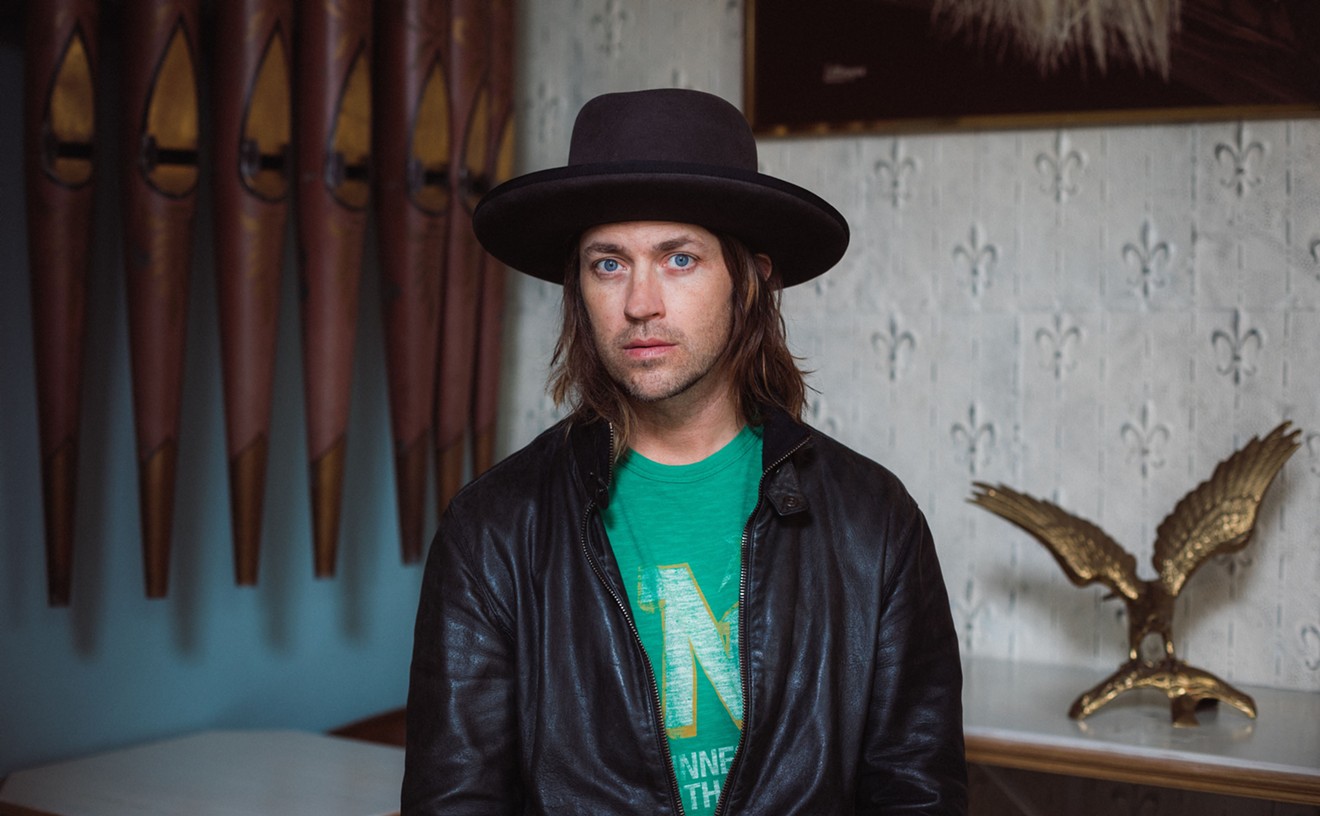My Charmed Life
Little Jack Melody and his Young Turks
Carpe Diem Records
Denton's Little Jack Melody--aka Steve Carter--has always been among the most ambitious of the abundant crop of eclecticists that our area has been blessed with. More directed than Paul Slavens, more textual than Brave Combo, and more native than Cafe Noir, Carter uses the cool pulses of nuevo lounge, the sophisticated purr of jazz, and the worldly burble of Hot Club virtuosity to create a musical accompaniment to his lyric essays, word-pictures that span both time and geography.
Yet Melody never seems to get his due, perhaps because of an underlying current of melancholy, resignation, and regret that runs through his work. No matter what other emotions are examined--satisfaction, hope, completion--there is always more than an echo of a wan smile, like that of someone gamely trying to be cool while in the painful company of an ex-lover.
Take it from the top of My Charmed Life: The deluded narrator of the title track, who believes his deserved share is always 100 percent, isn't that different from the singer of the next song, "Close But No Cigar" ("I could have been a contender")--except one realizes that life's all past him already, and the other doesn't. Melody's neo-cabaret sound definitely references Continental styles, but in a uniquely American way, like Tom Waits in a tuxedo. When Marianne Faithfull sings the Brecht-Weill standard "Alabama Song," it's as if she's plucked it whole from The Rise and Fall of the City of Mahogonny; Melody's version fits in perfectly with his reaction to American culture. When, in the chorus, he and the Young Turks bellow "We must have whiskey or we'll DIE!" it's as if the line comes from a silverback gorilla in a $3,000 suit with a cel phone--rapacious modern man.
It's the ascent of this great ape that bums Melody out so much--the turning of the Beat generation ("Gone in October" is a eulogy for Jack Kerouac) into the Blank generation. We think we have it made, Melody says, but we're really losing everything. In "Samba Ordinaire," an upbeat Brazilian beat masks the creeping loss stalking the man in the grey flannel suit: "The shower chases dreams away...what's your name?" concluding with "How does that saying go? It's the devil that you know." The disc-ending "Mr. Horizon" is a tropical, Arthur Lyman-esque fantasia drained of its escapist relief--"Mr. Horizon is having a very bad day," mocked by the fading la-la-la chorus of children. Don't write Melody off as a gloomy Gus, though, for in his uniquely sophisticated, feeling songs there's a perception so sharp as to be redemptive, recognizing the courage behind managing that wan smile when all you really want to do is burst into tears.
--Matt Weitz










